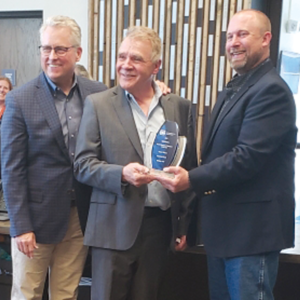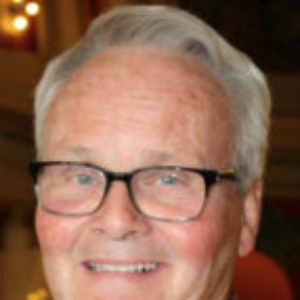By Tu-Uyen Tran, Federal Reserve Bank of Minnesota
This year’s construction season is expected to be leaner for a significant number of construction firms in the Ninth District compared with last year’s, according to a recent Minneapolis Fed survey.
About half of homebuilders and a third of firms in other sectors of the industry said they think profits over the next six months will be lower than in the same period a year ago
“Interest rates have taken a large portion of our buyers out of the market,” said the owner of a Wisconsin home construction firm. “Only higher end cash buyers don’t seem to be fazed.”
Nearly half of construction firms reported fewer new projects out for bid—known in the industry as requests for proposals (RFPs)—in what is normally a very busy season for them. Some respondents said more projects were delayed or canceled than normal.
The CEO of a Twin Cities architecture firm that works primarily in the commercial sector estimated that a third of the firm’s projects have been paused “based on lack of financing and financial stress of owners and developers.” The number of paused projects is still growing, she said.
Despite the gloomy forecast, however, many said they are optimistic about the future as they adapt to new conditions and seek out new markets.
The survey, conducted throughout April, included 254 respondents.
The construction industry has struggled with customer demand in the past year. A growing number of respondents have reported lower gross revenue since April 2022. In November, more than half of respondents reported lower RFP activity from private-sector customers in recent months compared with the same time period in 2021.
The hardest hit sector then was residential construction.
Up to that point, the industry had coped for several years with a tight labor market and supply chain disruptions resulting in higher project costs. 2022 added a new challenge with a sharp increase in interest rates. Benchmark prime loan rates exceeded pre-pandemic levels about midyear and kept rising. That made it harder for customers to afford the higher costs, especially homebuyers.
2023 could be déjà vu all over again for the industry with nearly half of respondents reporting lower RFP activity from private-sector customers in April. Residential construction was again the hardest hit.
“We simply are not getting the same amount of work we did three years ago,” said a Wisconsin homebuilder. “We have to bid more for the same amount of work.”
Outside of the residential sector, would-be customers are also trying to make sense of a changing economy . . . developers are trying to figure out what the market needs…
There’s also uncertainty about the direction the economy is going with so much speculation about a possible downturn and its timing.
All of which seems to have resulted in more hesitation among developers.
“There are projects being bid but not a whole lot of movement on them,” said a respondent from a Greater Minnesota subcontractor in the commercial sector. “Owners seem to want to ‘wait the storm out’ on a lot of projects.”
Projects that do get the greenlight, the respondent said, are mostly from large corporations, such as fast-food chains and big-box retailers.
Respondents are reporting elevated levels of project cancellations and delays. Thirty-nine percent of respondents said they had seen more cancellations recently compared with three months ago; respondents in the industrial and residential sectors were more likely to report cancellations. More than half of respondents said they had seen more delays, again, with higher rates in the industrial and residential sectors. In the past, delays have often been associated with late delivery of construction materials. But responses in the April survey suggest that many customers are changing their minds.
While interest rates are a top concern for many firms, especially those in the residential sector, for the rest of the construction industry, this concern pales in comparison to labor availability and price increases for construction materials and other inputs. These emerged as the top two concerns for the industry as a whole outside of customer demand, according to respondents.
Even in the residential sector, interest rates were less commonly cited compared with input costs.
A Greater Minnesota architect in the residential sector said none of her clients understand how much higher prices are. “Disbelief causes numerous restarts on projects that come in significantly over budget [compared with] when preliminary cost-per-square-foot estimations come in from contractors. We advise but are not always believed.”
She said the average cost of a home has gone up from $350 per square foot to $500 or even $550. “It is shocking to all of us.”
About a third of respondents said they had experienced price increases of 5 percent or more just in the past three months, and another third said their prices increased between 1 and 5 percent.
These rapid price increases have led to changes in how builders do business.
The Greater Minnesota residential architect said she has to constantly request new bids from suppliers to find the best prices because those prices seem to change every week to two weeks. “This is exhausting.”
A Twin Cities subcontractor in the commercial sector said the firm focuses more on projects that can start immediately because material costs in the near future are easier to estimate. For projects that are further out, the subcontractor said, the firm errs on the side of caution and submits bids that assume high increases in material cost even if it means the bids aren’t competitive. “We’re unwilling to hold the bag on far out contracts that include materials. If we’re bidding work that’s out six months, we are severely marking up our bids to reflect past material uncertainties that cost us millions of dollars.”
Hiring remains a challenge for many firms. Of those that have hired or planned to hire, 57 percent described the labor market as very tight with most of the rest saying it was slightly or moderately tight. Only 3 percent said it wasn’t tight.
That’s put more pressure on wages. About a third of firms said they had increased wages by more than 5 percent in the past 12 months. About a fifth said they planned to increase wages by more than 5 percent in the next 12 months.
“It seems most employees are fishing for other jobs to get more money causing us to pay more to keep them,” said a respondent from a Twin Cities subcontractor involved in the residential and commercial sectors. “New applications are asking for $25 to $30 an hour with little experience.”
With higher costs and more competition for fewer projects, some respondents said they’ve had to absorb the higher costs themselves.
“We’ve had to reduce our profits and margins in order to secure jobs,” a Wisconsin homebuilder reported. “This is not a sustainable practice as the cost of doing business keeps increasing and our gross proceeds are decreasing.”
Despite the many challenges respondents reported, a majority of respondents reported a positive to neutral outlook with 48 percent saying they are optimistic about the next six months and 29 percent saying they are neutral.
Even in the residential sector, 41 percent are optimistic and 28 percent neutral.
One reason respondents are more positive than their financial situation might suggest is they’re looking for opportunities in different markets and are feeling good about their chances of success. The owner of a Twin Cities residential subcontracting firm, for example, said that as fewer people look to build new homes, he’s focusing more on remodeling projects, where he believes he’ll have a better chance of winning contracts.
Most firms, including this subcontractor, are still hiring. Nearly two-thirds of respondents said they had hired in the past three months, and three-quarters said they plan to hire in the next six months. Those figures are only slightly lower than a year ago but double what they were two years ago, when the industry was on the upswing and interest rates were much lower.
For some contractors, the challenges faced by the construction industry are the new norm they will learn to live with.




